A Celebration of Brotherhood and Sisterhood
by Jeannette Sorrell
This week, as America reflects on a murder that launched a national reckoning one year ago, we at Apollo’s Fire are honored to lift our voices in celebration of the rich artistic contributions of Black artists and composers.
While the beautiful legacy of African American spirituals and folk music is well known, we are less familiar with historical Black composers and poets. The three presented here – along with our own living composer Jonathan Woody – may be a fresh discovery for many.
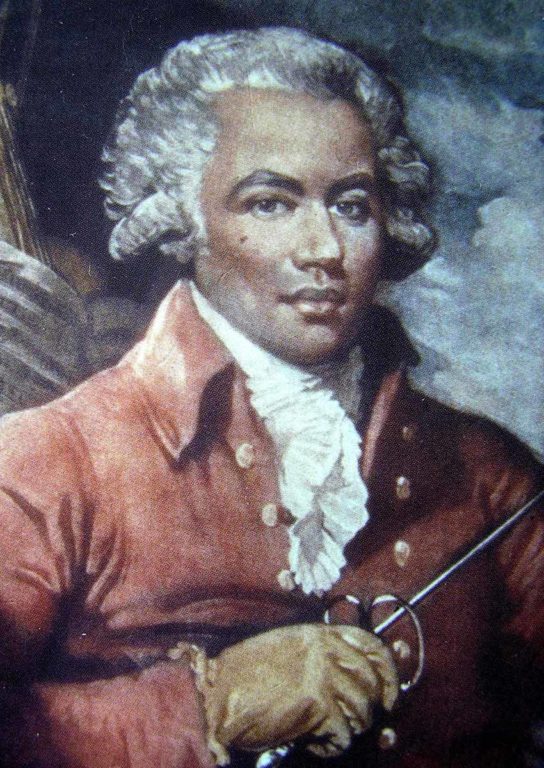
Chevalier de Saint-Georges
Joseph Bologne, Chevalier de Saint-Georges, was one of the most brilliant and fascinating figures of the 18th century. Known as “Le Mozart Noir” (The Black Mozart), he was the son of a wealthy French colonial plantation-owner and his young African slave, called Nanon. As a child, Joseph Bologne was taken by his father to France, where he became a famous champion fencer by the age of 17; then a renowned concert violinist and conductor of a leading Parisian orchestra by the age of 27; a beloved colonel in the French Revolution in 1789; and a composer of successful operas, violin concertos, and chamber music.
Bologne’s colorful and astonishing life is worthy of much more space than we have here – in fact, it is worthy of a Hollywood film. But here is a brief introduction to this remarkable composer’s story.

Joseph Bologne was born in 1745 – 11 years before Mozart – on the island of Guadaloupe in the Caribbean. Growing up in France, he became known as a teenager for his fencing prowess. At age 17, after easily winning a high-profile fencing match against a renowned French fencer, the young Joseph was granted the title of Chevalier (knight) by King Louis XV. From then on, he was known as Joseph Bologne, Chevalier de Saint-Georges. He quickly became the darling of Parisian society. A handsome, consummate dancer and virtuoso musician, he was sought out by the most elegant hostesses of Paris.
In 1772, when Bologne was 27, he caused a new sensation in Paris by making his debut as concertmaster and violin soloist with a prestigious Parisian orchestra – performing his own violin concerto. The following year, he became the orchestra’s music director and conductor, as well as music advisor to the 19-year-old Marie Antoinette at Versailles.
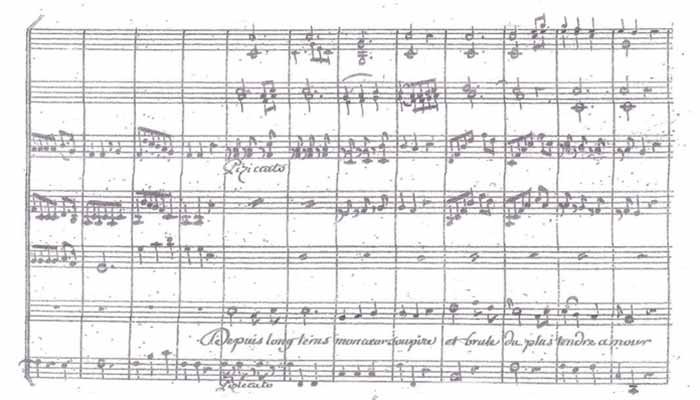
Bologne composed several violin concertos, considerable chamber music, and six operas. His Sinfonia Concertante for 2 solo violins with orchestra is thought to have been the model for Mozart’s Sinfonia Concertante for violin and viola. (Bologne’s came first.)
As a small introduction to his works, I have put together a short suite from his most successful opera, L’Amant anonyme. The story concerns a man named Valcour, who has a delicate position in upper-class society in France, having been granted an aristocratic title through achievements but being of lowly birth. In this sense, the character of Valcour may perhaps be a reflection of the composer himself. Valcour is hopelessly in love with the girl Leontine, but cannot expect to win her hand since he is not from a patrician family. This opera effectively captured the spirit of the times – the Enlightenment – reflecting on issues of class struggle and the human condition.
Over 100 years later, the African American brothers James Weldon Johnson and John Rosamond Johnson may not have been fencing masters, but they also produced remarkable achievements.
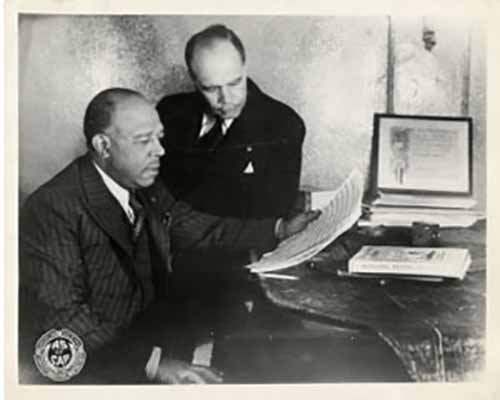
The Johnson brothers were born in the South in the 1870’s. They grew up witnessing the terror of the Ku Klux Klan activities, segregation, and the violent voter suppression of the Jim Crow era. Despite all of this, they both rose to prominent national careers. James become a nationally respected literary figure, a prominent writer and Civil Rights activist, and a diplomat who served in the State Department under President Theodore Roosevelt. John Rosamond Johnson was a successful musical-theatre composer in New York and London.
Together, the brothers wrote “Lift Every Voice and Sing,” which became a beloved hymn of the African American community. Though sung at many marches and protests in the Civil Rights Era of the 1960’s and 70’s, the song was composed in 1899 – when Black people’s voting rights were being subverted through state laws, mob violence, and the terror of lynchings. The song was first performed in 1900 by 500 Black students from the segregated Stanton School in Jacksonville, Florida. The lyrics are a prayer of thanksgiving, celebrating Lincoln’s emancipation of the slaves and evoking the biblical Exodus from slavery and the struggle of the journey to freedom in the “promised land.”
We are grateful for the music of these Black composers, reminding us of our shared brotherhood and sisterhood in America.
Jeannette Sorrell
Cleveland, May 2021
Reggie Mobley Discusses the Woody/Mobley composition, Nigra Sum
The idea for this piece came in a moment of frustration after an interaction with a well-meaning audience member, who commented on the shock of hearing such a voice (my voice) come from a figure that is more in line with NFL field fodder. Even though this happens much more than it should, it only occurred to me then that this must be just as frequent with every other artist of color.
So I sent out a Facebook post asking for stories, quotes, and anecdotes from every person of color who would be willing to share their experience to be used in a project. I then filtered and compiled many of these stories and situations into text form. At that point, I thought about partnering with a Black composer to see what we could make of it, and it was barely a moment that I realized it had to be my good friend Jonathan Woody. Jonathan is a gifted composer who has the added skill of writing quite fluently in earlier styles. (He’s also a damn good bass-baritone.)
It seemed that for a lot of us, these racist encounters often happen right before we are to perform for these very offenders. So while they sit in the hall and hear beautiful Bach cantatas and Monteverdi madrigals, we stand in front of them performing, yes, but also stewing on the terrible things that were just said to us. It’s a difficult juxtaposition of doing what we love, all the while questioning our worth and belonging.
Nigra Sum was written to strip that away. Instead of the words of long dead European poets and writers, listeners are confronted with what may be their own words, reflected back to them. I think it will be cathartic for some, and painful for others. But the intent is that everyone leaves that piece on the same page, regardless of race or life experience.
Woven into this text is also the Latin text of a passage from Song of Solomon: Nigra sum sed formosa, or I am Black but beautiful. This text has been set MANY times (including by Monteverdi in his Vespers of 1610). These days, often the word “sed” (but) is changed to “et” (and). However, I love the word “sed”, because to me it actually speaks to a strength and resilience that is so much more powerful. It’s more of a protest. It kind of says, “I understand that I do not register as beautiful under this society’s standards of beauty, but nevertheless, here I am. I am STILL beautiful. Whether you see it or not.”
Excerpted from the Castle of our Skins blog, Apr. 14, 2019
Castleskins.org
Meet the Artists
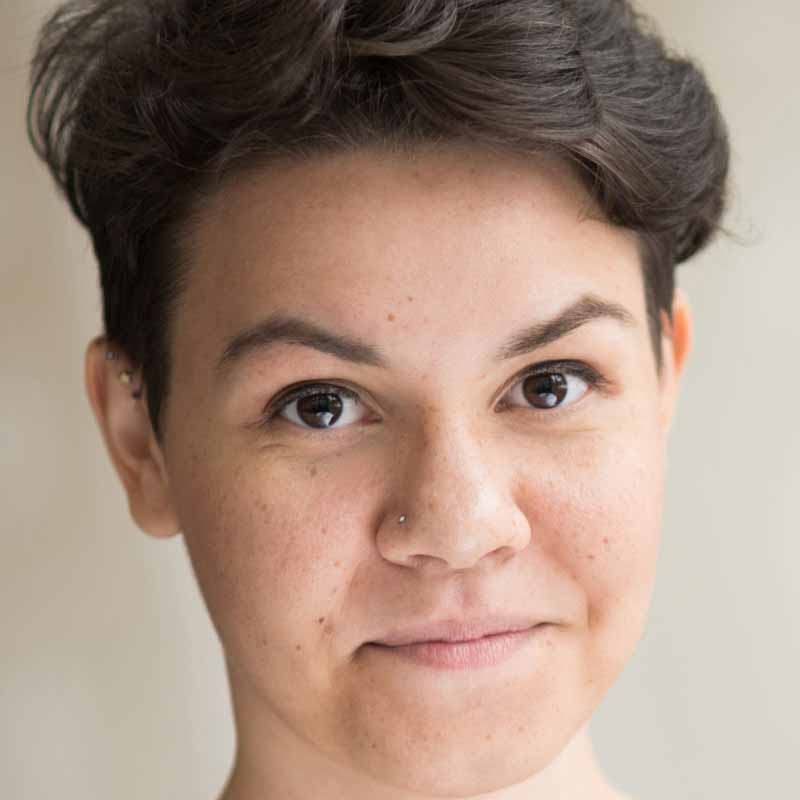
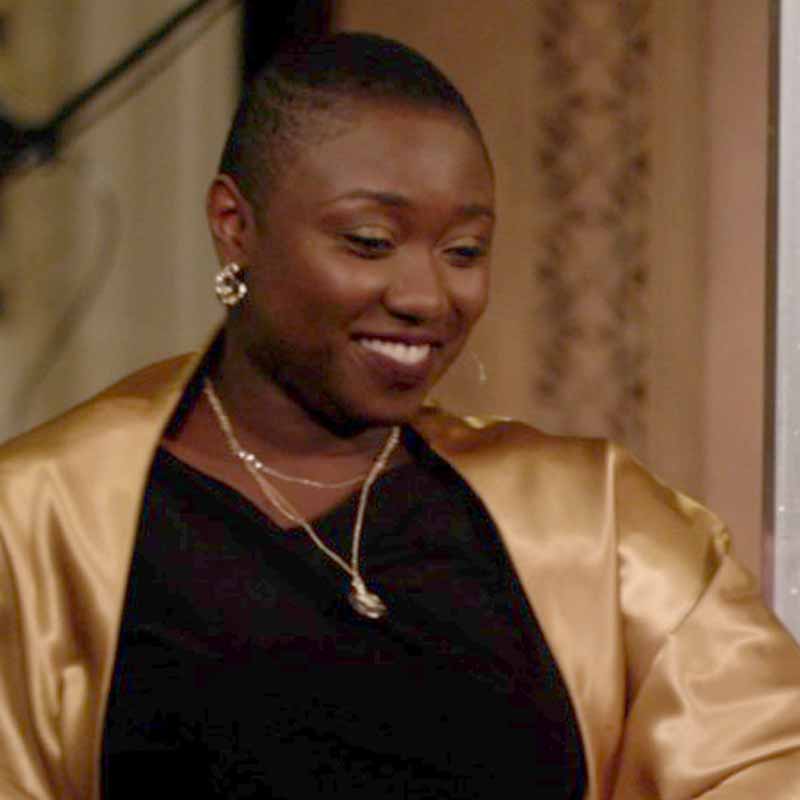
While an undergrad, Ashlee served as AF’s first Artistic Outreach Intern, singing the role of Princess Pamina in AF’s in-school workshops and performances. She has performed with the Akron Symphony Orchestra and Cleveland Opera. In 2020 she joined AF’s professional chorus, Apollo’s Singers, with whom she has performed in Cleveland and New York City.
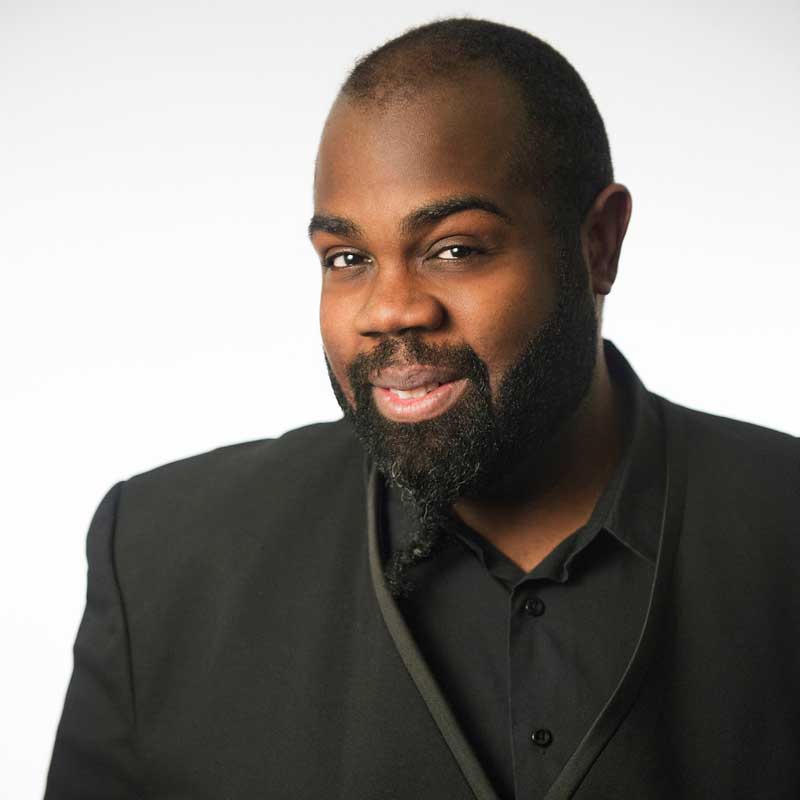
With roots in the Deep South and the struggles of the black community, Reggie is dedicated to helping the classical music industry overcome its inequality issues regarding race, gender, and sexuality. A strong devotion to social and political activism is part of Reggie’s everyday life, adding to his strength in reaching diverse communities. His outreach experience includes designing programs of music by 18th-century African composers who worked in Europe. A versatile artist, Reggie worked for two years as a singer/actor for Tokyo Disney in Japan. He has performed cabaret shows of gospel, jazz, and torch songs in jazz clubs. He serves as a programming consultant for the Handel & Haydn Society, where he directs the “Every Voice” program.
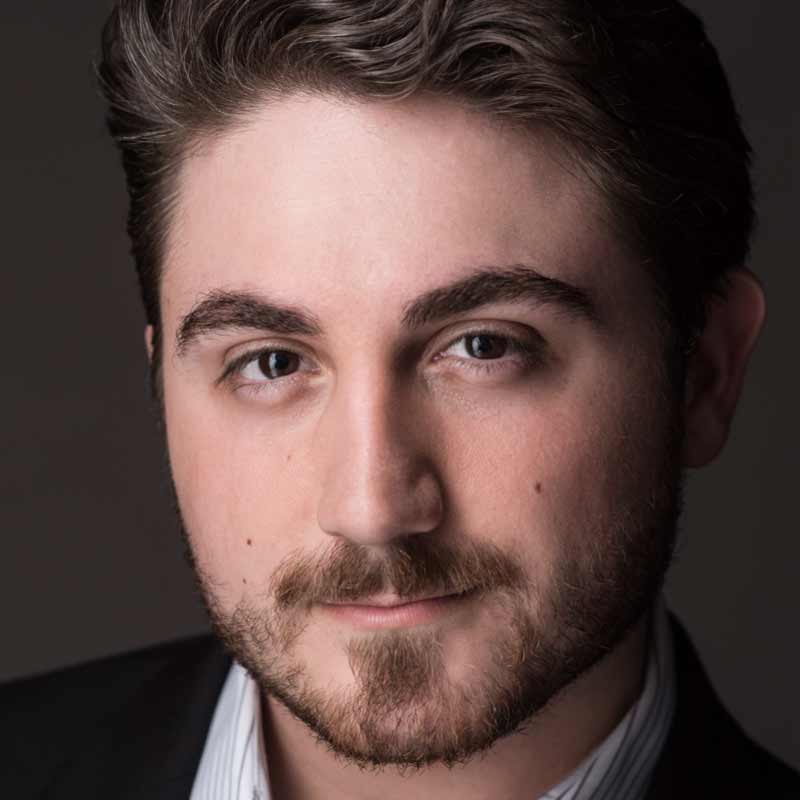
Deeply immersed in vocal chamber music, Mr. Perry enjoys playing with Les Canards Chantants, a soloist-ensemble based in Philadelphia, as well as engagements with ensembles such as The Thirteen, the Art of Early Keyboard, New Consort, and Cathedra. Additionally, he can be heard singing with larger choirs such as Yale Choral Artists, The Clarion Choir, Washington Bach Consort, and the Choir of Washington National Cathedral. He has explored vocal works by contemporary composers through engagements with Third Practice, hexaCollective, and Great Noise Ensemble. As Co-Artistic Director of Bridge, a genre-defying vocal ensemble based in Washington, he draws on his instincts for theatricality and story-telling, as the group explores the connections between early masterpieces and ground-breaking new works.
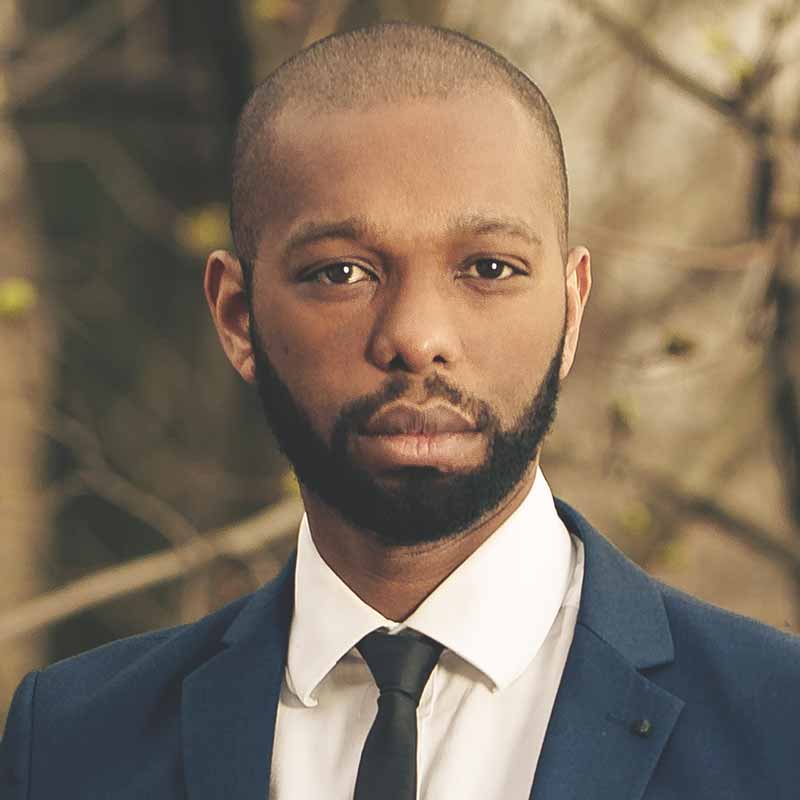
An avid performer of new music, Jonathan has premiered Ted Hearne’s The Source (2014), a seminal work on the subject of Chelsea Manning’s actions regarding the leak of classified U.S. documents. He is also featured on the cast recording of that work (New Amsterdam) and has reprised it in 2016 at LA Opera’s REDCAT and SF Opera Lab in 2017. Other recent premieres include works by Ellen Reid (p r i s m); the NYC premiere of Missy Mazzoli’s Breaking the Waves, and Du Yun’s Pulitzer-Prize winning Angel’s Bone. Jonathan can be heard on CD recordings with the Boston Early Music Festival, New York Polyphony, and Trinity Wall Street. As a composer, he has been commissioned for groups including the Handel & Haydn Society and the Uncommon Music Festival.

